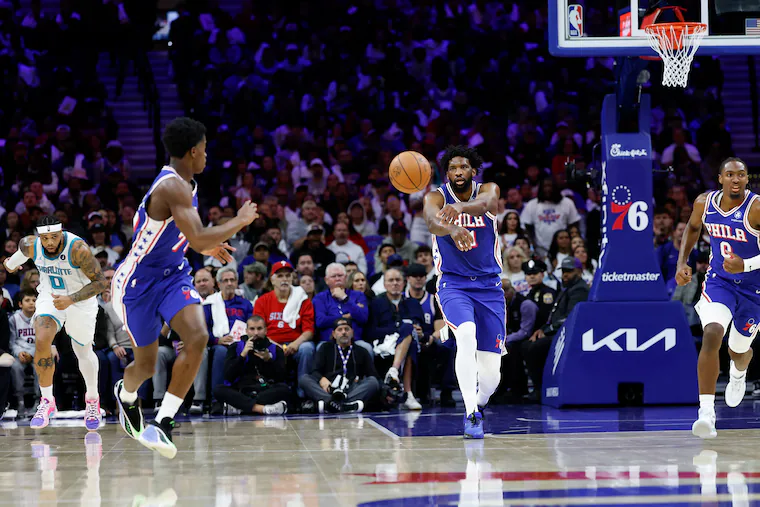Copyright Parade

Key Points Diet sodas may lower calcium absorption due to phosphoric acid and caffeine content. Excessive diet soda intake can weaken bones, especially for those with low or at-risk calcium levels. Doctors recommend calcium-rich foods over supplements; excess calcium supplements have health risks. These days, we’re more aware of how sugary beverages can affect our health, and for good reason. Millions of Americans have Type 2 diabetes, and reducing sugar intake can help people manage or prevent the condition. However, some popular drinks have kept their “health halos” because they can (rightfully) slap “no sugar” on their labels. But experts emphasize that these “no sugar” labels don’t mean nothing problematic is going on there. “Many drinks marketed as healthy or low-calorie may contain ingredients that can be harmful to the body over time,” says Dr. Don Thushara Galbadage, Ph.D., MPH, an associate professor of applied health sciences at Texas Christian University. “Understanding their real effects helps consumers make informed decisions and avoid nutrient imbalances or metabolic disruptions.” In fact, a popular “healthy” drink could be depleting your calcium levels. Doctors spill which one, why the drink can reduce calcium and what to sip to better support your bones. 🩺SIGN UP for Parade’s health newsletter with expert-approved tips, healthy eats, exercises, news & more to help you stay healthy & feel your best self💊 What ‘Cancels Out’ Calcium Absorption? Doctors warn that diet sodas can make it harder for the body to absorb calcium, potentially leading to low levels of this vital mineral. “Diet sodas often have phosphoric acid,” says Dr. Raj Dasgupta, MD, the chief medical advisor for Sleepopolis. “This acid can make it harder for your body to absorb calcium and may even pull calcium out of your bones. Over time, this can weaken bones, especially if soda replaces milk or other calcium-rich drinks.” Additionally, diet sodas may contain caffeine, a diuretic that causes you to pee more. Dr. Dasgupta notes that you lose small traces of calcium in your urine. Frequent urination becomes problematic if you’re already operating on low calcium levels, putting you at a greater risk for issues like broken bones. Speaking of which, a 2020 Nutrients study found that soft drink consumption was linked with higher odds of fractures. Related: This Is the Very Best Cheese for Strong Bones, According to Registered Dietitians Does Diet Soda Reduce Existing Calcium Levels? Diet soda can reduce the body’s calcium levels, which may come as a surprise given that they’re often marketed as “healthy” because they don’t have calories or added sugars. “These products often appeal to a wider audience because they seem ‘better’ than regular soda, but the ingredients inside can interfere with vitamin and nutrient absorption,” warns Dr. Oyinkansola Awodiya, MD, a board-certified internal medicine physician and founder of Ohonay Health. “Over time, this can impact bone health, metabolism and overall wellness.” What Happens if You Drink Diet Soda Excessively Doctors explain what happens to calcium levels when you drink diet soda excessively: 1. The phosphoric acid limits calcium absorption Ever wonder why diet sodas taste so tangy? It’s the phosphoric acid. While the taste buds may lap it up, it makes it harder for the bones to do the same with calcium. “The high phosphate load can bind calcium in our digestive tract, limiting its absorption,” points out Dr. Christopher Scuderi, DO, FAAFP, a family physician. “If there isn’t enough calcium in the body to offset the phosphoric acid, the body may pull from its existing reserves, which can affect bone density.” He notes that phosphoric risk is an issue if the body is already low on calcium. In people with normal calcium levels, a diet soda here and there is likely fine (at least from a bone health standpoint). However, he says postmenopausal women and people with hypoparathyroidism are at higher risk for low calcium, so they’ll want to be particularly mindful of diet soda consumption. 2. Caffeine makes you pee (out calcium) Caffeine may give you an energy jolt. The extra energy comes in handy when you have to bolt to the bathroom, which you will soon do after downing a caffeinated beverage. “Caffeine is a mild diuretic, meaning it increases urine production,” Dr. Galbadage explains. “This can lead to small but measurable calcium losses through urine. Frequent consumption of caffeinated diet sodas compounds this effect, especially if dietary calcium intake is already low.” 3. Diet soda has sneaky inflammatory effects Dr. Awodiya notes that soft drink consumption—yes, including diet sodas—is often linked to obesity and inflammation, “which can interfere with the body’s ability to activate vitamin D in the liver and kidneys.” This process is critical for calcium absorption, she says. 4. Diet soda can affect gut health You may not associate gut health with strong bones, but your body’s systems work together as a team. “Artificial sweeteners in diet sodas can negatively affect gut health, which may disrupt the body’s ability to absorb calcium and other key nutrients effectively,” Dr. Awodiya adds. 5. You may drink fewer bone-supporting beverages One of the biggest pain points doctors have with diet soda is that it often serves as a “replacement drink” for beverages that actually build strong bones. “People who drink a lot of diet soda often drink less milk or water,” Dr. Dasgupta says. “That means they may get less calcium overall and miss out on drinks that help keep minerals in balance. Over time, this can lower calcium levels and harm bone health.” Related: The #1 Early Sign of Osteoporosis Most People Miss, According to Orthopedists What Does Calcium Do for the Body? “Calcium is essential for bone and tooth strength, muscle contraction, nerve function, and blood clotting,” Dr. Galbadage states. He warns that chronic low calcium might lead to: Osteopenia or osteoporosis (weakened bones) Increased fracture risk Muscle cramps or spasms Long-term skeletal issues (if the deficiency begins early in life) Related: This Is Hands-Down the Best High-Protein Snack for Weight Loss, According to Registered Dietitians How Much Calcium Do I Need per Day? It depends on your age and sex. The National Institute of Health’s Office of Dietary Supplements guidelines state: Adults aged 19 to 50 years old (including those who are pregnant/breastfeeding): 1,000 mg Men aged 51 to 70 years old: 1,000 mg Women aged 51 to 70 years old: 1,200 mg Adults aged 71 years and older: 1,200 mg Doctors recommend a food-first approach to calcium intake. Dr. Dasgupta says excellent calcium sources include: Dairy (milk, yogurt and cheese) Fish (Salmon and sardines with bones) Leafy greens (kale, bok choy and collard greens) Beans and nuts (white beans and almonds) Fortified foods (cereals and orange juice with added calcium, though be mindful of the excess sugar in the OJ) As for supplements? You don’t need them—or want them—if your calcium levels are just fine. “Excessive calcium greater than 2,000-2,500 mg per day has risks,” Dr. Scuderi warns. He says that consuming too much calcium can lead to a higher likelihood of: Kidney stones Cardiac issues Constipation Stomach pains “It is very important to understand these risks are higher with supplementation and not with the calcium that you consume [through food],” he notes. “Discuss your calcium supplementation with your family physician to ensure you are taking safe levels and to discuss ways to ensure you are getting adequate calcium from your diet.” Up Next: Sources:



